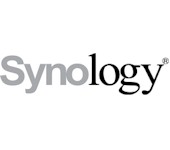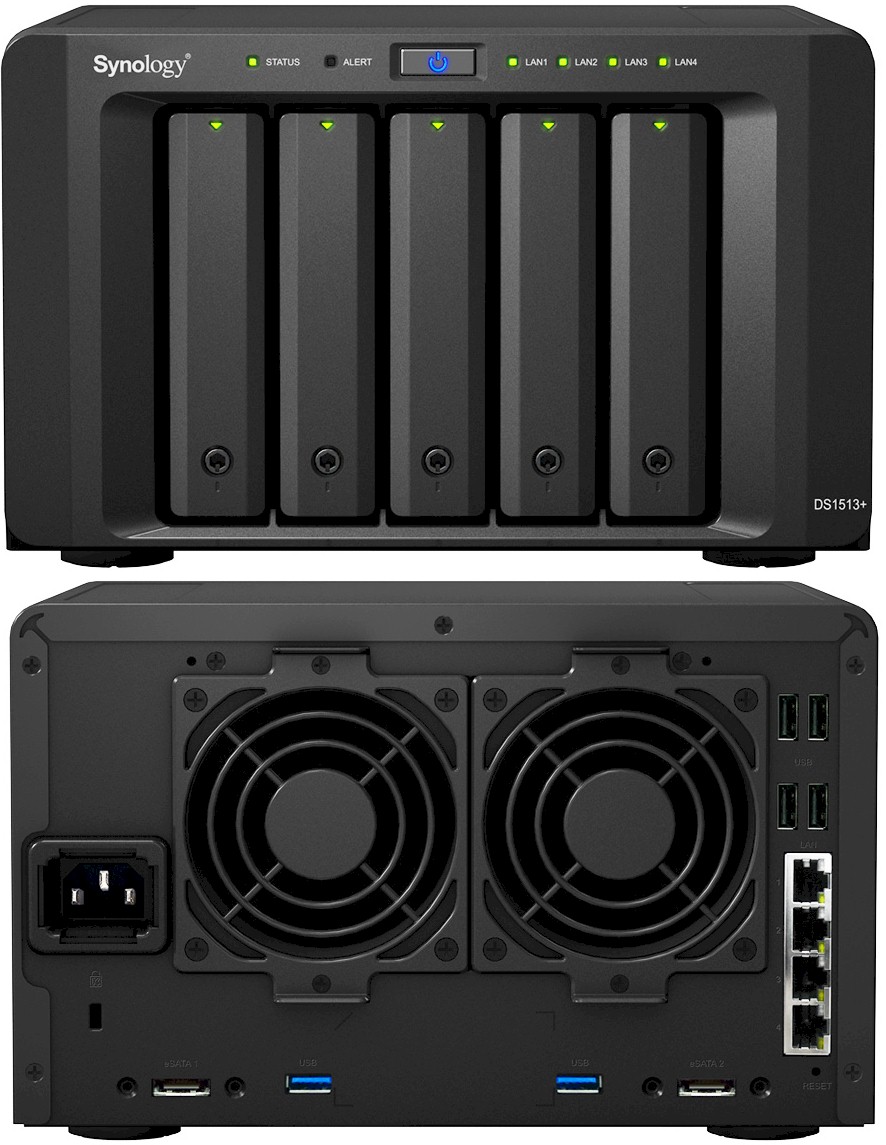 Synology has announced a new expandable Intel-based five-bay NAS.
Synology has announced a new expandable Intel-based five-bay NAS.
The DS1513+ is similar to Synology’s older DS1512+, with both based on 2.13 GHz Intel Atom D2700 CPUs. The DS1513+’s key advantages over the DS1512+ are four Gigabit Ethernet ports vs. two and 2 GB of DDR3 RAM (expandable to 4 GB) vs. 1 GB (expandable to 3 GB). Both have two USB 3.0, four USB 2.0 and two eSATA ports.
Using 4 TB drives, the base NAS supports up to 20 TB of raw capacity that can be expanded to a to 60 TB total with two DX513 expansion units that connect via eSATA.

Synology DS1513+
The DS1513+ runs Synology’s DSM 4.2 OS that includes improved cloud connectivity, virtualization support including VMware vSphere 5.1 with VAAI Support, Microsoft Hyper-V, and Citrix XenCenter.
The DS1513+ will be shipping soon at a suggested MSRP of $879.99. The DS1512+ will continue to be sold at around $800.
